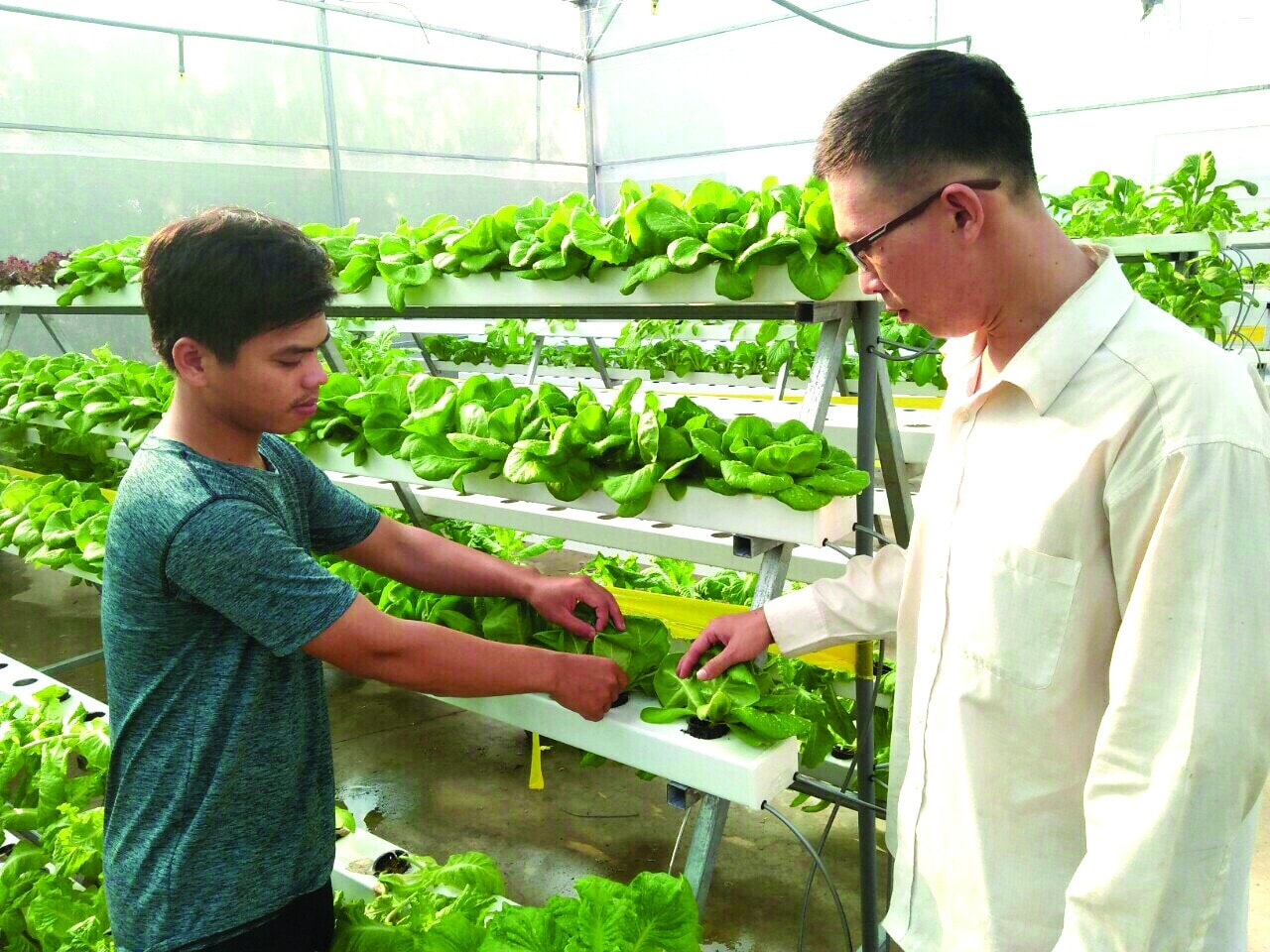Farmers selling products on digital environment
Hạ tầng - Ngày đăng : 14:15, 13/09/2021
Recently, it is not difficult to see many farmers livestreaming and introduce products right at their farms and gardens
Agriculture in digital environment
The pandemic of COVID-19 has had unpredictable happenings that caused negative impacts to agricultural production, supply chains have severely been broken causing agricultural product consumption to standstill, connections to our export markets as China, the EU and the U.S turned to be worse, there have been serious impacts from droughts, salinity intrusions and typhoons… All of them has made our agriculture sector face series of difficulties and challenges.
In addition to focusing on exploiting the domestic market and investing in technology of production and processing, digital transformation has been considered an inevitable trend for the agricultural sector at present and in the future. One of effective solutions for the current process of agricultural consumption is to put products on e-commerce floors, which not only helps the circulation of agricultural products in the context of the pandemic but also cuts off unnecessary intermediaries and promote equality in the value chain.
Recently, it is not difficult to see many farmers livestreaming and introduce products right at their farms and gardens: selling from eggs, vegetables to fruits with just their smartphones on digital platforms. With this method, farmers can easily reach customers in need. Buyers can also easily order and track the process of harvesting, packing, preserving…
In the past, it was impossible for consumers in Ca Mau or Dalat to buy fresh Bac Giang lychees and have them delivered to their homes. It is completely different now, consumers anywhere in Vietnam can order Bac Giang lychees and have them delivered at their homes in 48 hours.
When buying goods on e-commerce sites, consumers put their trust in farmers because it is impossible to try products or to see them with their own eyes until it is delivered. Therefore, farmers need to ensure their commitments to quality, food safety and hygiene in the statge of introduction and in other stages of harvesting and preserving… so they can gain trust from consumers.
According to a preliminary report on management from the Minstry of Information and Communications, in the first 6 months of the years, more than 15,600 agricultural products have been listed on e-commerce platforms, with participation from more than 8,000 farming households in provinces and cities. The total value of agricultural products on e-commerce platform reached VND 944bn- a 3 time increase year-over-year in 2020. And this was the first time that Bac Giang lychees exported to the Europe market under the model of “Cross-border E-commerce” through the e-commerce platform of domestic enterprises.
Help farmers change themselves
Digital transformation in agriculture in general and putting agricultural products on the e-commerce floor in particular is an issue that requires close linkage among many ministries and branches from central to local level, especially the process of changing habits, awareness of farmers - who hold the key to success.

Help farmers change themselves
Familiar with the traditional way of selling agricultural products through traders, farmers have delt with difficulties when putting agricultural products on e-commerce floors. The biggest limitations are the way of approaching sale technology (account registration, online payment methods), especially selling skills on e-commerce floors…
On July 21, the Ministry of Information and Communications issued the Decision no.1034/ QD-BTTTT approving the plan to support agricultural production households on e-commerce platforms, promoting development of the digital agriculture and rural areas. E-commerce platforms participating in the support include postmart.vn (Vietnam Post Corp.) and voso.vn (Viettel Post Corp.)
Accordingly, focusing on supporting agricultural production households, individual business households, cooperative groups (Agricultural production) to register to participate in e-commerce floors to connect, promote and introduce products, adding new distribution channels, expanding domestic and international markets. At the same time, supporting agricultural production households to promote the consumption of agricultural products on e-commerce floors; promoting fast consumption, avoiding congestions of agricultural products during peak harvest, helping people hold prices of agricultural products, avoiding dependence on traders and intermediaries. Through e-commerce platforms and digital platforms, providing useful information for agricultural production households as agricultural product market information, demand forecast and agricultural production capacity, weather information, crops, varieties... Selecting and putting on the e-commerce floor products, raw materials, input materials, tools for agricultural production with reputable brands, good quality, and reasonable prices to introduce and provide to customers agricultural production households.
Relevant ministries, departments and agencies in the localities should organize guidance and training in digital skills, and skills to participate in activities in the digital environment; guiding farmers to register for an account to bring in agricultural products as well as making online payments for transactions on the e-commerce floor; guiding the implementation of packaging - connection - delivery for agricultural production households to operate in the process of connecting and buying on the e-commerce floor.
At the same time, e-commerce floors need to upgrade technology to be suitable to real situation in each province. When a household goes on the floor, they have to have fully standardized information about accounts, farmer household records, IDs… platforms should be standardized to be the basis for common digital economic development.
